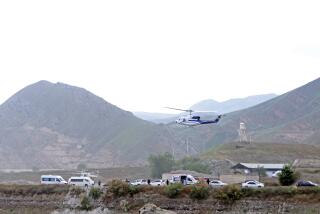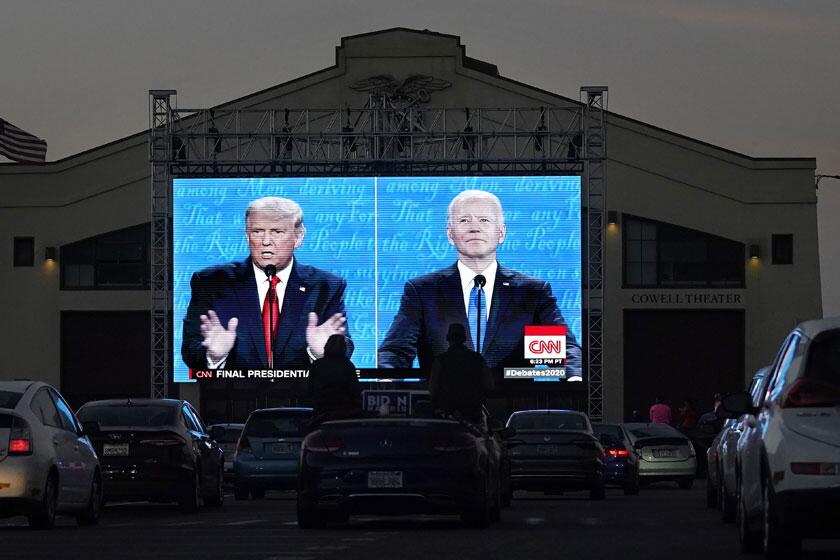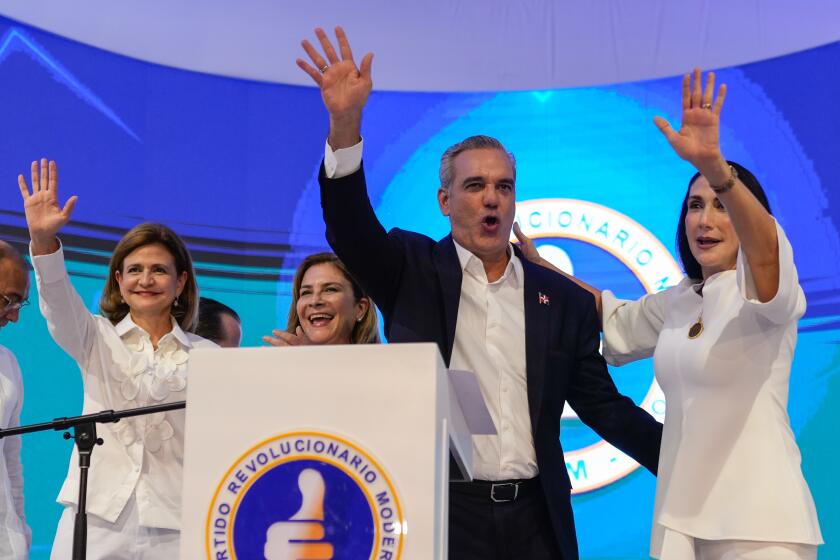A Case of Don’t-Blame-Me Is Sweeping the Vatican
A quiz for modern sensibilities:
What do you do when your bad, potentially criminal behavior deeply wounds others, possibly scarring them for life? Do you:
A) Pull a George Washington, taking full responsibility for your actions as a moral, independent individual?
B) Refuse to accept the old-fashioned notion of blame, since you are the product of a permissive society that undermines your morality at every turn with such appalling images as the recent national magazine cover featuring Cindy Crawford and k.d. lang in a sexually suggestive pose?
C) Pay your victims hush money in out-of-court settlements and hope the whole thing goes away?
*
If you are the Vatican, the correct answer is B.
That’s right. The don’t-blame-me phenomenon that has swept America has whirled across the Atlantic and touched down in the spiritual home of this country’s 59 million Roman Catholics. And what is the bad behavior for which the Vatican blames society? Why, the sexual abuse of women and children by priests.
This is how the chief spokesman for Pope John Paul II, Joaquin Navarro-Valls, put it: “One must ask oneself if, in this case, the principal defendant may not be an irresponsibly permissive society, hyper-inflated with sexuality . . . capable of inducing to grave immoral acts persons who have for years received solid moral training and an education in virtue.”
Excuse me for thinking clearly, but it strikes me that one must ask oneself what it is about the institution of the priesthood--the outdated doctrine of celibacy?--that has helped create this problem.
As anyone who follows the news knows, the U.S. Catholic Church has been rocked by revelations of sexual abuse by priests. The litany of improprieties and allegations ranges from encounters with adult parishioners to pedophilia.
The more famous cases include the former archbishop of Santa Fe, who resigned after three women accused him of molesting them; a former priest who was accused by more than 60 men and women of sexual abuse and who acknowledged that he molested numerous children during his years in the church; and a priest who resigned his position as head of a famous New York city shelter for runaways after being accused of sexually molesting some of his charges. The priest in that case denied wrongdoing.
The stories go on and on.
So far, according to church officials, the number of American priests who have committed sexual abuse is 400. The cases, most of which have ended in out-of-court settlements, have cost the church about $400 million. (Do the math: pretty expensive transgressions. That’s why answer C in our quiz is sometimes correct.)
The problem has become so acute that recently, U.S. bishops asked the Pope for permission to fire, or “unfrock,” priests guilty of sexual abuse. One of their motives, it has been reported, was to stanch the flow of church dollars being paid in civil-damage claims to victims. So far, the Pope has refused to surrender that authority. Last month, U.S. bishops established a committee to investigate the problem of clerical sexual abuse.
*
You couldn’t say that the Vatican’s statement amounts to victim-blaming, though it has a whiff of that unfortunate tendency about it.
Until recently, the church seemed not to concern itself much with helping those who have been sexually abused by priests recover from the trauma. Until recently, the church has behaved as though priests who violate their vows, their parishioners and the law are stray lambs who need to be brought back into the fold--a transfer here, a stint at a church-funded counseling program there.
It has not been enough.
In the grand tradition of misplacing blame, the Pope, in a letter last month to U.S. bishops, accused the media of sensationalizing the issue.
Hardly. The sexual abuse of children, especially by priests--trusted pillars of their local communities--is the very definition of scandal.
And frankly, it is coverage of this widespread problem that has forced the issue out of the darkness and into the light. For that, we can thank the abused, who have courageously broken their silence and allowed their stories to be told.
Victims, finally, are being recognized as such by the church. At a meeting last month in New Orleans, U.S. bishops announced the formation of a committee that would deal with what can only be considered a crisis in the church. The committee was also charged with, at last, providing help for victims.
The Holy Father, as one might expect in his letter to the bishops, counseled prayer.
“Yes, dear brothers,” he wrote, “America needs much prayer--lest it lose its soul.”
In this instance, it’s not America’s soul I’d worry about.
More to Read
Start your day right
Sign up for Essential California for news, features and recommendations from the L.A. Times and beyond in your inbox six days a week.
You may occasionally receive promotional content from the Los Angeles Times.







